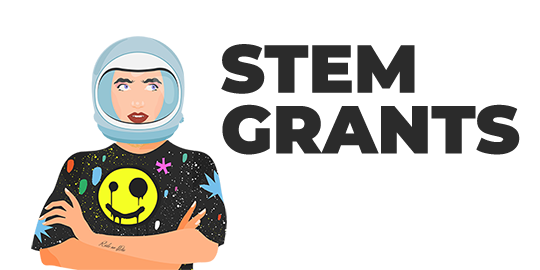NSF National Robotics Initiative 2.0 – DUE: 2-5-19
Monticello Grants for Education of Women – DUE: Rolling
August 20, 2018NSF Cultivating Cultures for Ethical STEM – DUE: 2-22-19
September 2, 2018The NRI-2.0 program builds upon the original National Robotics Initiative (NRI) program to support fundamental research in the United States that will accelerate the development and use of collaborative robots (co-robots) that work beside or cooperatively with people. The focus of the NRI-2.0 program is on ubiquity, which in this context means seamless integration of co-robots to assist humans in every aspect of life.
The program supports four main research thrusts that are envisioned to advance the goal of ubiquitous co-robots: scalability, customizability, lowering barriers to entry, and societal impact. Topics addressing scalability include how robots can collaborate effectively with multiple humans or other robots; how robots can perceive, plan, act, and learn in uncertain, real-world environments, especially in a distributed fashion; and how to facilitate large-scale, safe, robust and reliable operation of robots in complex environments. Customizability includes how to enable co-robots to adapt to specific tasks, environments, or people, with minimal modification to hardware and software; how robots can personalize their interactions with people; and how robots can communicate naturally with humans, both verbally and non-verbally. Topics in lowering barriers to entry include development of open-source co-robot hardware and software, as well as widely-accessible testbeds. Topics in societal impact include fundamental research to establish and infuse robotics into educational curricula, advance the robotics workforce through education pathways, and explore the social, economic, ethical, and legal implications of our future with ubiquitous collaborative robots.
Collaboration between academic, industry, non-profit, and other organizations is encouraged to establish better linkages between fundamental science and engineering and technology development, deployment, and use.
The NRI-2.0 program is supported by multiple agencies of the federal government including the National Science Foundation (NSF), the U.S. Department of Agriculture (USDA), the U.S. Department of Energy (DOE), and the U.S. Department of Defense (DOD). Questions concerning a particular project’s focus, direction and relevance to a participating funding organization should be addressed to that agency’s point of contact, listed in section VIII of this solicitation.
Award Information
Anticipated Type of Award:
Standard Grant or Continuing Grant or Cooperative Agreement or contract vehicles as determined by the supporting agency
Estimated Number of Awards: 40 to 60
per year, subject to the availability of funds.
Foundational projects will range from $250,000 to $750,000 in total costs for up to three years. Integrative projects will range from $500,000 to $1,500,000 in total costs for up to four years. Please refer to Section III for agency-specific budget criteria.
Anticipated Funding Amount: $25,000,000 to $35,000,000 per year, subject to the availability of funds.
Eligibility Information
Who May Submit Proposals:
Proposals may only be submitted by the following:
- Universities and Colleges – Universities and two- and four-year colleges (including community colleges) accredited in, and having a campus located in, the US acting on behalf of their faculty members. Such organizations also are referred to as academic institutions.
- Non-profit, non-academic organizations: Independent museums, observatories, research labs, professional societies and similar organizations in the U.S. associated with educational or research activities.
- For USDA/NIFA: Eligible applicants/Principal Investigators (PIs) for the grant program implemented under this subpart include: (1) State agricultural experiment stations; (2) colleges and universities (including junior colleges offering associate degrees or higher); (3) university research foundations; (4) other research institutions and organizations; (5) Federal agencies, (6) national laboratories; (7) private organizations or corporations; (8) individuals who are U.S. citizens, nationals, or permanent residents; and (9) any group consisting of 2 or more entities identified in (1) through (8). Eligible institutions do not include foreign and international organizations.
Who May Serve as PI:
There are no restrictions or limits.
Limit on Number of Proposals per Organization:
There are no restrictions or limits.
Limit on Number of Proposals per PI or Co-PI: 2
An investigator may participate as PI, co-PI, or Senior Personnel in no more than two proposalssubmitted in response to this solicitation each year.
In the event that an individual exceeds this limit, proposals received within the limit will be accepted based on earliest date and time of proposal submission (i.e., the first two proposals received will be accepted and the remainder will be returned without review). No exceptions will be made.
The above limit applies only to proposals to the NRI-2.0 solicitation, not to the totality of proposals submitted to NSF
FOR MORE INFORMATION VISIT: https://www.nsf.gov/publications/pub_summ.jsp?WT.z_pims_id=503641&ods_key=nsf18518
